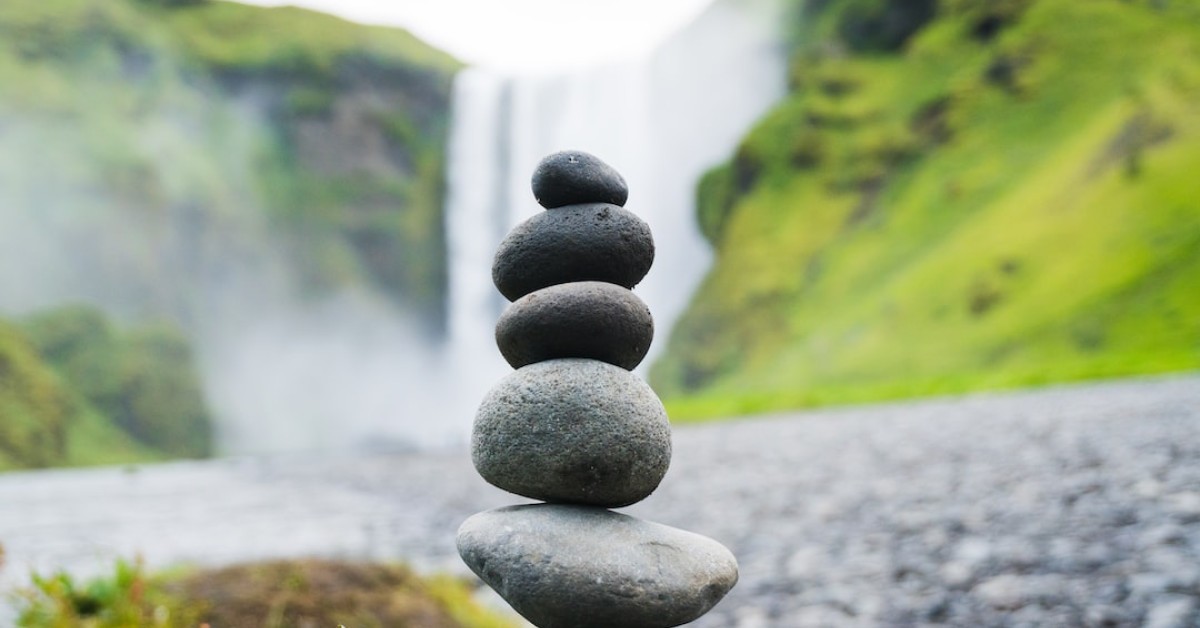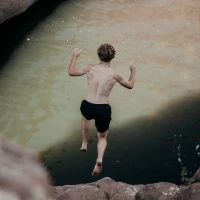Freediving, also known as breath-hold diving, is a fascinating and exhilarating sport that allows individuals to explore the depths of the underwater world without the need for cumbersome scuba gear. It is a practice that goes beyond mere physical prowess, as it requires mental and emotional discipline, deep relaxation, and a connection with the inner self. In this article, we will delve into the world of freediving and explore how it can bring balance and harmony to our lives.
The Art of Freediving
Understanding Freediving
Freediving is the practice of diving underwater, either in a pool or in open water, on a single breath of air. It is an ancient practice that dates back thousands of years, with evidence of its existence found in ancient civilizations such as Greece, Egypt, and Polynesia. Today, freediving has evolved into a popular sport and recreational activity, with dedicated freediving schools and competitions worldwide.
Benefits of Freediving
Freediving offers a multitude of physical, mental, and spiritual benefits. On a physical level, it improves cardiovascular health, increases lung capacity, and strengthens the muscles involved in breathing. Mentally, it promotes focus, discipline, and stress reduction. Spiritually, it provides a sense of connection with the underwater world and a profound sense of inner peace.
The Zen of Freediving
Freediving is often described as a form of meditation in motion. It requires complete presence of mind and a state of deep relaxation in order to optimize breath-holding capacity and dive deeper. The Zen of freediving lies in the ability to find stillness and tranquility in the midst of the underwater chaos. It is about surrendering to the depths, letting go of control, and embracing the beauty and mystery of the underwater world.
The Physical Aspects of Freediving
Apnea Training
One of the key aspects of freediving is apnea training, which focuses on increasing breath-holding capacity and improving overall lung function. Apnea training involves a series of exercises and techniques aimed at strengthening the respiratory muscles, increasing the oxygen-carrying capacity of the blood, and teaching the body to tolerate higher levels of carbon dioxide. Some popular apnea training techniques include static apnea (holding the breath without moving), dynamic apnea (swimming underwater on a single breath), and CO2 tolerance training.
Equalization Techniques
Equalization is a vital skill in freediving, as it allows divers to equalize the pressure in their ears and sinuses as they descend to greater depths. Failure to equalize properly can lead to discomfort and potential injury. There are several equalization techniques that freedivers use, including the Valsalva maneuver (pinching the nose and blowing gently against a closed mouth), the Frenzel maneuver (contracting the muscles in the back of the throat to direct air into the Eustachian tubes), and the mouth-fill technique (using the tongue to push air into the middle ear).
Freefall Techniques
Freefall is the moment when a freediver starts to descend after reaching the surface. It is a critical phase of the dive that requires proper body positioning and relaxation. Some of the key freefall techniques include the head-first entry (diving headfirst into the water to reduce drag), the relaxed streamline position (extending the body in a relaxed and hydrodynamic position), and the use of a monofin or bifins (specialized fins that enhance propulsion and efficiency).
Mastering the Mental Game
Breathing Techniques
Freediving is all about breath control, and mastering proper breathing techniques is essential for success in the sport. The most common breathing technique used in freediving is diaphragmatic breathing, also known as deep belly breathing. This technique involves using the diaphragm to inhale and exhale deeply, allowing for greater oxygen intake and promoting relaxation. Another important technique is the use of breath-up routines, which involve a series of controlled breaths to prepare the body and mind for underwater exploration.
Visualization and Relaxation
Visualization and relaxation techniques play a crucial role in the mental preparation for freediving. Many freedivers use visualization exercises to mentally rehearse the dive before actually entering the water. By visualizing the dive in vivid detail, including the sensations of descending, equalizing, and exploring the underwater world, divers can enhance their performance and reduce anxiety. Relaxation techniques such as progressive muscle relaxation and mindfulness meditation can also help calm the mind and achieve a state of flow.
Overcoming Fear and Anxiety
Freediving can be an intense and demanding activity, and fear and anxiety can often arise during dives. Overcoming these emotions is an essential part of the mental game in freediving. By understanding and acknowledging fear, divers can develop strategies to manage it, such as positive self-talk, controlled breathing, and incremental exposure to deeper dives. Building confidence through experience and training is also key to reducing anxiety and enjoying the full benefits of freediving.
The Spiritual Connection
Deepening the Connection
Freediving offers a profound opportunity to connect with the natural world and tap into a sense of awe and wonder. The silence and weightlessness of the underwater environment create a unique space for self-reflection and introspection. Many freedivers report feeling a deep sense of connection with the ocean and its inhabitants, as well as a renewed appreciation for the beauty and fragility of marine ecosystems. This connection to nature can bring about a greater sense of purpose and a commitment to environmental sustainability.
Finding Inner Peace
Freediving can be a transformative experience that allows individuals to tap into a state of inner peace and harmony. The act of surrendering to the water and letting go of the need for control can be incredibly liberating. In this state, divers can experience a sense of oneness with the underwater world, a deep connection with their own breath, and a release of stress and tension. Freediving becomes a moving meditation, where the mind clears, and a sense of calm and tranquility prevails.
Safety Considerations
Training and Certification
While freediving can be a safe and enjoyable activity when practiced with proper training and precautions, it is important to recognize the inherent risks involved. Acquiring formal training from a certified freediving instructor is strongly recommended for beginners. A good instructor will teach essential safety procedures, dive planning, and emergency protocols. Certification agencies such as AIDA (International Association for the Development of Apnea) and PADI (Professional Association of Diving Instructors) offer comprehensive courses that cover the necessary skills and knowledge for safe freediving.
Buddy System
Freediving is not a solo activity, and it is always advisable to dive with a buddy. Having a trained buddy who understands the techniques and safety protocols of freediving can make a significant difference in case of an emergency. Buddies can provide assistance in case of blackout, help with equalization issues, and perform rescue procedures if necessary. Additionally, diving with a buddy adds an element of accountability and serves as a check on each other’s safety.
Dive Planning and Safety Measures
Proper planning is crucial for safe freediving. This includes assessing the dive site, considering environmental factors such as water temperature and currents, and setting depth and time limits based on personal capabilities and experience. It is also essential to have a safety plan in case of emergencies, including the use of safety buoys or lanyards to mark the dive location, carrying emergency equipment such as signaling devices and oxygen tanks, and ensuring effective communication between diving buddies.
Conclusion
Freediving offers a unique opportunity to explore the depths of the underwater world and discover the zen of the deep. It is a practice that requires physical strength, mental focus, and emotional resilience. Through proper training and the development of essential skills, such as breath control, relaxation, and visualization, freedivers can embark on a journey of self-discovery and find balance and harmony beneath the surface. As you delve into the world of freediving, remember to prioritize safety, respect the ocean, and embrace the transformative power of the underwater realm.










